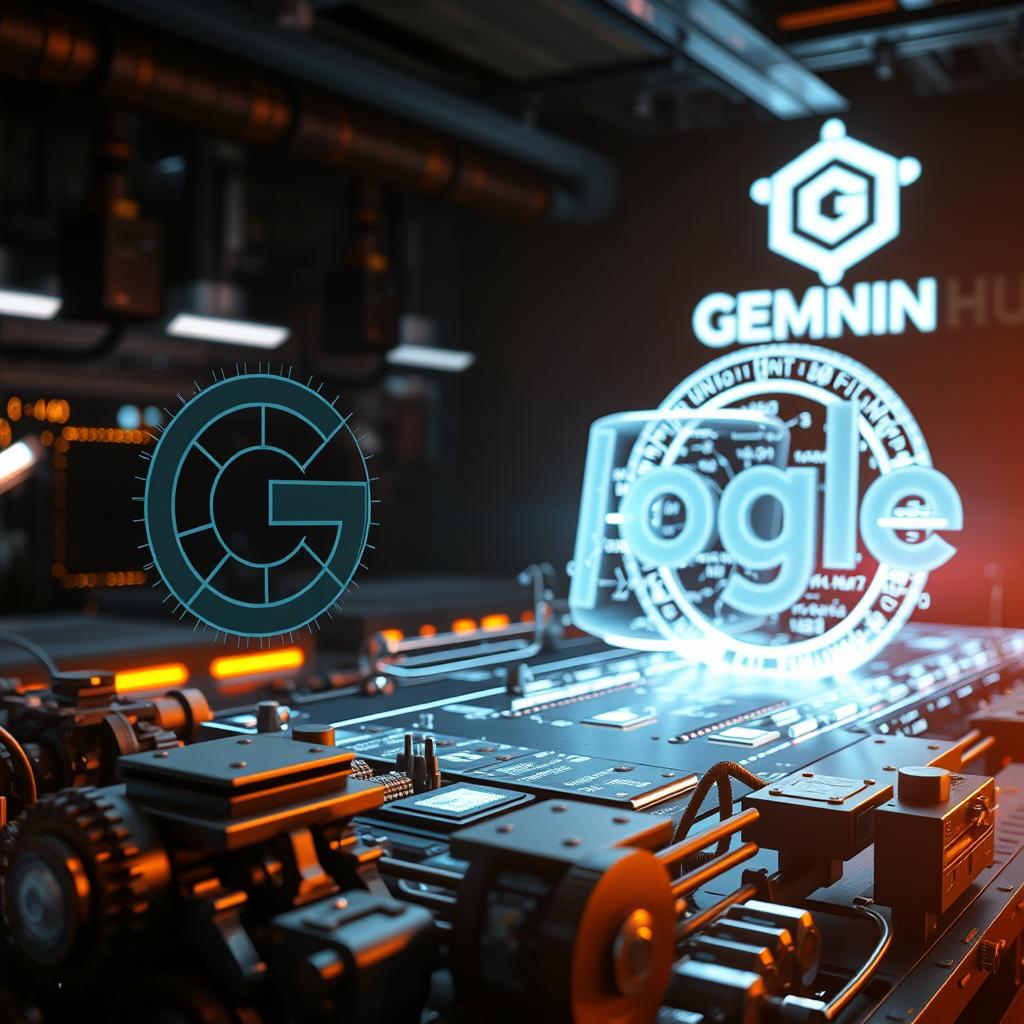More than 90% of digital interactions begin with a search, and Google dominates this space. This dominance makes many believe AI is the key driver in the evolution of how we find information.
For marketers, brands, and website owners, the absence of guesswork is a blessing. They witness a platform that aligns with user intent, urging them to keep up with AI advancements. For more on how to apply these strategies, contact us at +1 (929) 989-3343.
Key Takeaways
- AI-driven search shapes how people explore websites
- Google relies on machine learning to refine user intent
- RankBrain adjusts results to match search habits
- Voice and conversational queries shift keyword strategies
- Staying updated with AI trends supports stronger rankings
Breaking Down AI in Google’s Search Algorithm
AI principles are at the heart of Google’s search engine. It uses advanced data analysis to spot patterns in user behavior. This method ensures content is ranked based on relevance, clarity, and value to the reader.

How Natural Language Processing Shapes Search Intent
Natural language processing mimics human speech patterns. It captures the subtleties in language, leading to more accurate answers. Brands that align their content with user queries often gain better visibility.
Examining Machine Learning in Core Updates
Machine learning plays a key role in core updates. It evaluates site content, speed, and engagement metrics. Then, it adjusts rankings to meet evolving user expectations. Marketers can improve their SEO strategies by creating content that engages users and meets Google’s technical standards.
Factors Driving AI-Driven SEO Trends
Many organizations aim for better visibility in search results by embracing machine learning. This move necessitates a refinement of on-page structures and content flow. The goal is to provide clear, direct answers to readers. Brands that prioritize user goals create standout pages.
RankBrain is a key player in this arena. It analyzes complex queries and identifies patterns that reflect user preferences. Teams that optimize for these signals often witness an uptick in engagement. This leads to a more personalized browsing experience and increased satisfaction.
- Prioritize specific topics that resonate with genuine needs
- Design layouts that guide visitors with easy-to-read text
- Adapt technical elements to help search bots crawl smoothly

| AI Factor | Impact on SEO | Key Benefit |
|---|---|---|
| RankBrain | Analyzes user intent | Delivers content users crave |
| NLP | Detects phrasing contexts | Aligns messages with real searches |
| ML Algorithms | Observe website signals swiftly | Sustain top rankings |
How Machine Learning Enhances SEO
Machine learning broadens the horizon of search optimization. It deciphers real-time user actions on platforms like Google, guiding content strategists to better align with evolving preferences. Brands can boost their visibility by leveraging algorithms that learn and adapt continuously.
Analyzing Search Behavior Changes
These technologies dissect patterns, filtering through vast data to spot shifts in intent. Researchers examine queries and dwell time, identifying what captures clicks. User signals expose top interests, guiding strategic tweaks. This knowledge empowers digital marketers to target the right audiences more accurately.
Optimizing Content Creation Techniques
Teams refine headlines, add relevant media, or restructure text post-machine learning review. The Google BERT update champions clarity and context. Authentic content that educates visitors tends to rank higher. Marketers focus on user-friendly formatting and semantic depth to align with advanced algorithms.
- In-depth user intent analysis drives engagement
- Contextual keywords improve query matching
| Machine Learning Aspect | Key Benefit |
|---|---|
| Behavior Analysis | Identifies content that resonates with readers |
| Natural Language Processing | Ensures text aligns with user intent |
Voice Search Optimization and AI Influence
Voice assistants from Google and Amazon open new avenues for brands to engage more deeply. AI algorithms understand natural speech, making answers that mirror real conversations. This approach helps marketers position content for voice queries, building trust with users.
Preparing for Spoken Queries
People interact with devices every day, expecting quick and clear answers. This shift emphasizes the need for content that directly addresses questions. AI provides insights to ensure clarity and structure in responses, aligning with user intent.
Adapting Keyword Strategies for Conversational Searches
Optimizing for voice queries goes beyond standard keywords. Content creators focus on long-tail expressions in titles and headings. Voice search optimization also involves adjusting meta descriptions, lists, and paragraphs for everyday speech. Brands increase visibility by using dialogue-based keywords and topic-rich articles.
Adapting Content Strategies for AI Search
Brands need to be agile to keep up with AI search. Clear and substantial content boosts visibility as AI improves Google’s algorithm. Short paragraphs and easy-to-read content are key for users looking for quick answers. Meta tags, internal links, and relevant headings also enhance discoverability in search engine results pages (SERPs).
Creating content that meets user intent is essential. Regular updates show search engines that your site is active. Technical checks are important, but engaging language and structured data are more effective. For example, bullet points can make complex information easier to understand.
Quality and depth are what AI search values. Tailoring content to specific topics aligns with how AI interprets language. Keeping an eye on Google’s algorithm changes is also vital. AI search favors content that is trustworthy, detailed, and directly addresses user needs.
Google’s AI Search Journeys Are Reshaping SEO
Brands now face new challenges as Google enhances its machine learning. These systems better understand queries, pinpointing user needs at various stages. This change highlights the importance of continually refining keyword strategies, content formats, and audience targeting.
“AI is one of the most profound things we’re working on.” — Alphabet’s leadership
Why Google’s Evolving Algorithms Matter
Every core update changes how websites rank organically. Machine learning uses user interactions to show results that match intent. This environment favors original content, well-organized pages, and clear answers.
Staying Ahead with SERP Features
Featured snippets, knowledge panels, and People Also Ask boxes are growing. Websites that optimize for these can gain authority and stay high in rankings. Using simple language, concise summaries, and focusing on users often boosts visibility. This helps content stand out over competitors in search results.
Impact of Google’s Algorithm Updates on SEO
Google’s algorithm updates keep marketers on their toes. Each update brings new ways to understand user behavior and deliver relevant results. These changes reflect a growing reliance on AI technologies that refine search rankings with precision.
A proactive mindset is essential for websites to stay visible. Regular content audits, up-to-date metadata, and user-friendly site architecture are key. Algorithm updates shape ongoing SEO strategies, urging marketers to quickly adapt to changes in ranking signals. Many professionals focus on natural language, high-quality backlinks, and links to authoritative sources.
- Deliver engaging content based on real audience questions.
- Strengthen website performance through consistent optimization.
John Mueller from Google once said, “A thoughtful approach to site updates leads to trust and stronger rankings.”
| Algorithm | Key Focus |
|---|---|
| Panda | Quality of on-page text |
| Penguin | Integrity of backlink profiles |
Tips for Staying Competitive in AI-Driven SEO
Brands aiming for visibility focus on user intent and quality content. Search algorithms, powered by machine learning, favor pages that meet audience needs with precision. Creating relevant content and refining site structure can enhance ranking in the ever-changing digital landscape.
Leveraging RankBrain for Better Rankings
Google’s RankBrain analyzes search query patterns to identify content that directly answers user questions. By examining keyword clusters and crafting meaningful subheadings, brands can guide visitors to more accurate answers. Those that study user interactions and tailor articles to probable intent stand out in competitive markets.
Enhancing Website Performance with AI Insights
Improving site speed and navigation is key to higher visibility. Search engines prefer pages that load quickly and adapt to user preferences. Organizations track metrics like bounce rates, time on page, and conversion rates, following AI-based recommendations. Many also focus on mobile responsiveness and content flow for a better user experience.
Barry Schwartz: “Constant updates from Google keep us on our toes, urging deeper strategies that resonate with user intent.”
Conclusion
Brands in digital marketing are witnessing a significant shift as artificial intelligence refines search results. This evolution is driven by a deeper understanding of user intent and quicker updates to content strategies. Google’s AI search journeys underscore the imperative to evolve content and analytics.
AI-driven SEO relies heavily on meticulous keyword selection and creating user-friendly experiences. Marketers who focus on engagement signals, optimize site performance, and track fresh data can uncover more effective paths to higher rankings. The rise of voice commands and question-based queries demands new strategies for online visibility.
Algorithms behind Google’s AI search journeys favor concise, valuable content. Content that directly addresses audience needs often secures top SERP positions. Teams that adopt an agile mindset can swiftly adapt to updates, boosting reach, keeping visitors engaged, and strengthening brand credibility.
Staying current with AI search algorithms requires a blend of quality content, technical excellence, and a forward-thinking approach. This strategy ensures digital platforms remain agile in the fast-paced world of SEO.
FAQ
What are the top benefits of AI search algorithms for marketers?
AI search algorithms offer precise targeting and enhanced user satisfaction through machine learning for SEO success. They track user behavior and refine responses continuously. This helps marketers deliver content that is highly relevant and improves user experiences.
How can websites adapt to Google search ranking factors influenced by AI?
Websites should focus on quality content, semantic relevance, and site performance. Adapting SEO for Google’s AI advancements involves reviewing keyword usage, technical optimizations, and user intent data. This ensures higher rankings and better visibility in AI-powered SERPs.
Why are SEO best practices for AI-driven search so important?
Following SEO best practices for AI-driven search ensures content meets evolving algorithm standards. It also caters to voice-enabled devices and advanced natural language processing. Staying updated helps companies maintain competitive performance and meet AI-based search demands.
What role does machine learning play in shaping content strategy?
A: Machine learning in SEO analyzes user engagement, search trends, and context. It provides insights for content creation. This allows marketers to refine topical relevance, prioritize audience needs, and adjust strategies based on real-time data.
How does voice search optimization connect with search journey optimization?
Voice search optimization focuses on conversational queries, requiring context and rapid response. Integrating voice search optimization into search journey optimization offers seamless experiences. It captures the attention of users who rely on spoken commands and natural language queries.
What Google search trends should businesses monitor to keep up with AI improvements?
Businesses should track updates in organic search ranking factors, changes in the Google search algorithm, and the growing impact of ai-driven search optimization. Staying informed about new features like People Also Ask and featured snippets helps understand evolving user intent and adjust strategies promptly.
Where can businesses seek guidance on adapting to Google’s AI search updates?
For tailored advice on ai search optimization and search engine optimization trends, businesses can consult SEO professionals or digital marketing consultants. Implementing strategies based on Google’s machine learning in search optimization ensures content remains relevant and competitive.






